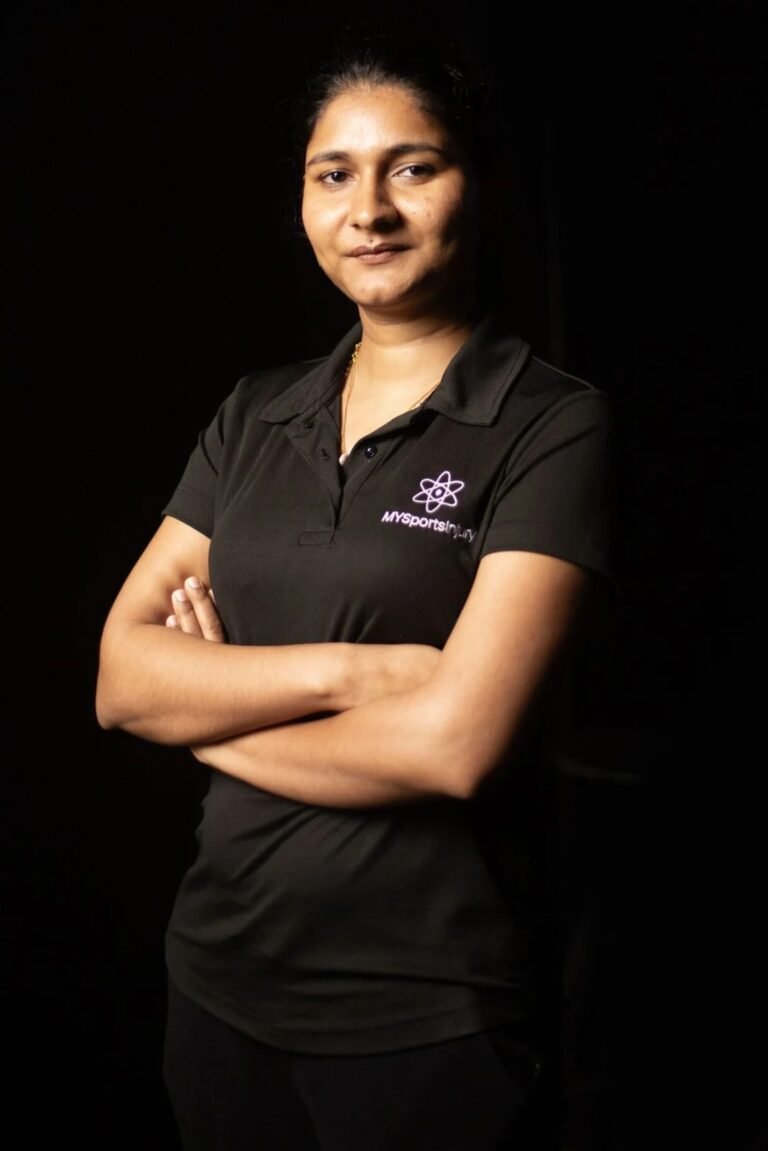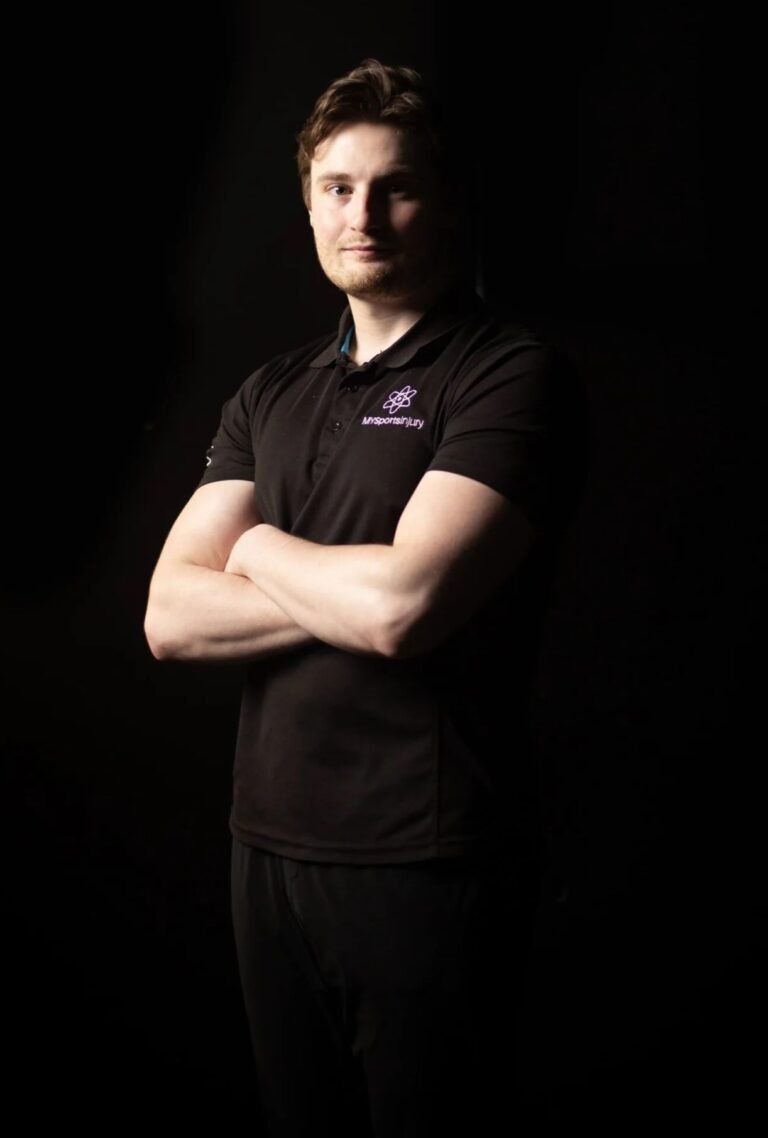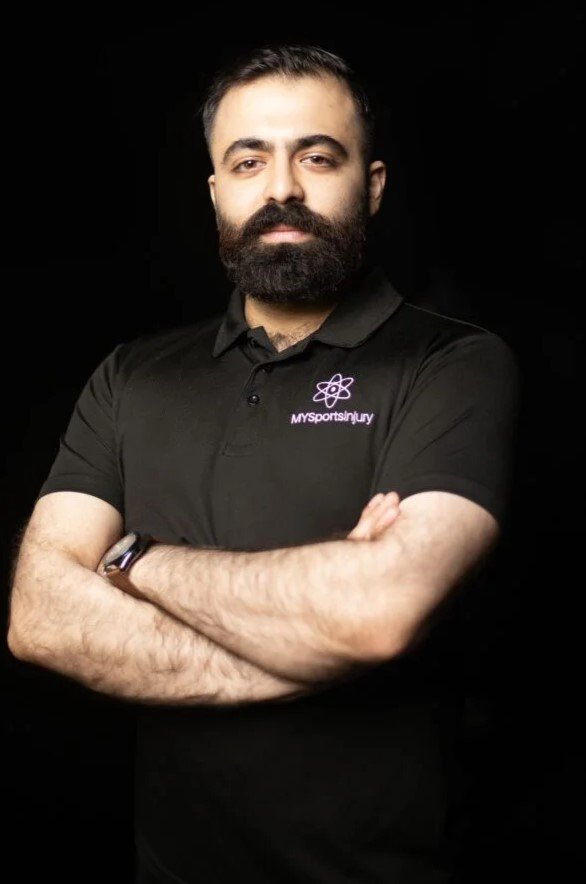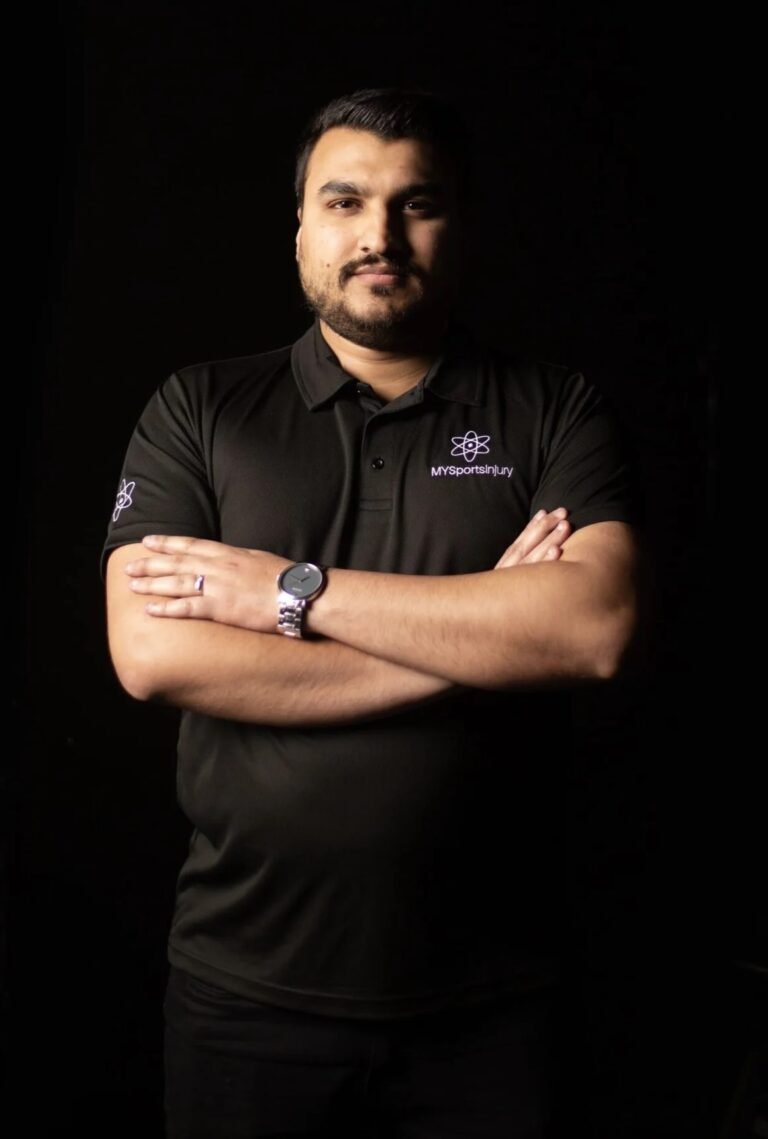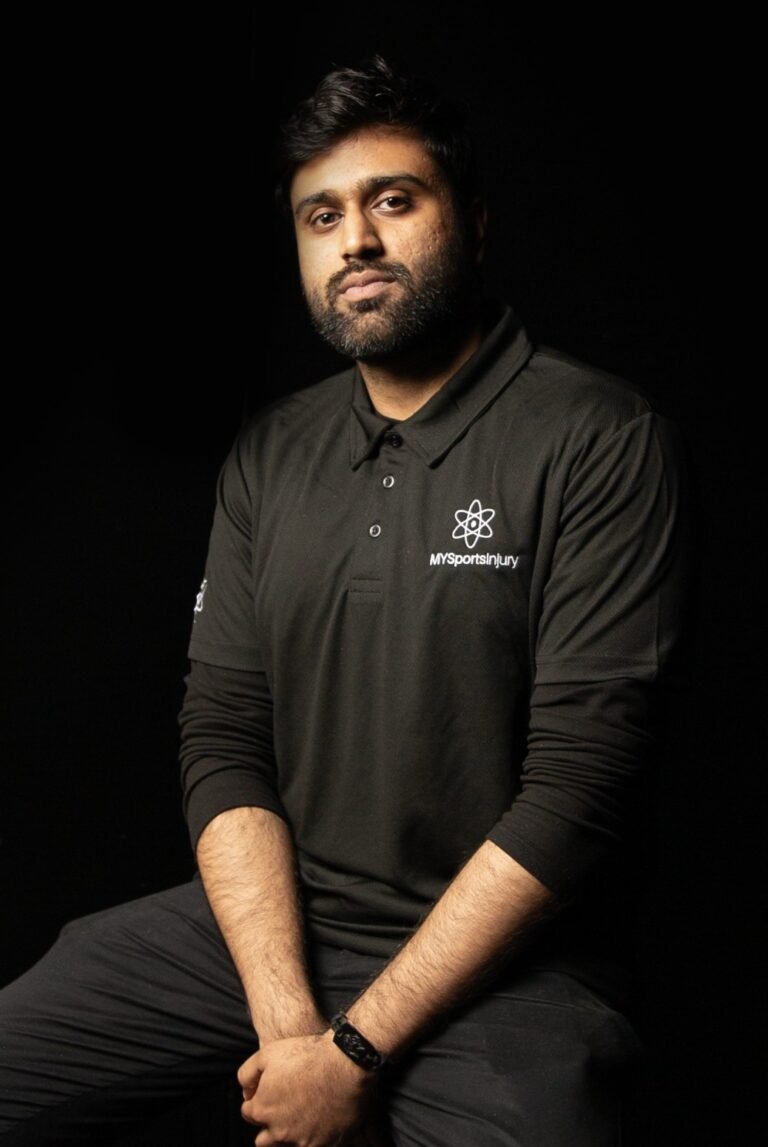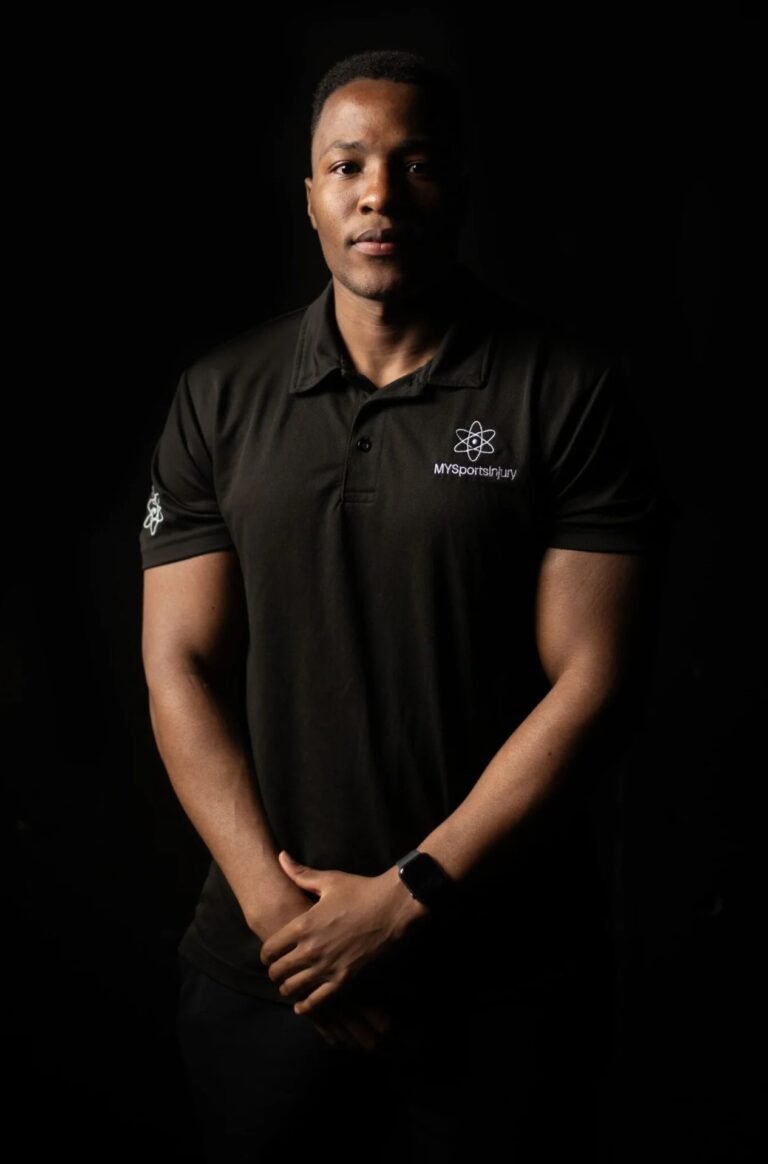Trustindex verifies that the original source of the review is Google. I've had a shoulder impingement for years and booked with Ali Musa, who assessed my issue in the first session, asking questions to narrow down the problem and plan a solution. He provided valuable insights, particularly about my posture. In the second session, a deep tissue massage and home stretches improved my chest shape and posture, motivating me to continue fixing the issue once and for all!Trustindex verifies that the original source of the review is Google. great upper trap release completely eliminating my lower back pain too! will definitely be coming backTrustindex verifies that the original source of the review is Google. Went to Dr. Ali for back pain. He took his time to assess the situation, asking a lot of questions before beginning therapy. After 2 sessions the areas he hit are doing a lot better, haven't felt this way in years. Would highly recommendTrustindex verifies that the original source of the review is Google. Dr Farooq diagnosed an injury which was other physios were having difficulty diagnosing. After 2 sessions I feel alot better and nearly back to full fitness.Google rating score: 5.0 of 5, based on 537 reviews
Our mission is to
MY SPORTS INJURY PHYSIOTHERAPY | CHIROPRACTIC
At MY Sports Injury, your journey to health and recovery is our foremost priority. Our highly skilled team of expert physiotherapists, Sports Chiropractic Doctors, and dedicated healthcare professionals is committed to delivering exceptional patient-centered care.
We recognize the challenges you may have encountered within the healthcare system, and we are here to make a meaningful difference in your life. Our mission is to empower you towards pain-free living and optimal health. Trust us to guide you on your path to recovery.
Sports Massage or Deep Tissue Massage can be used to manipulate the soft tissues of the body for the purpose of improving the functionality of muscle tissue helpog to correct postural eltaed pain.
Chiropractic is a specialised health profession that cares for a patient. Sports Chiropractors provide assessment, evaluation to diagnose and treat a patient’s muscular, nervous, and skeletal systems.
Providing you with unique structured Rehabilitation programs with long term health benefits enhancing your recovery and enabling you to return to sports performance
MY Sports Injury use acupuncture to help restore the balance of energy in the body which can relieve pain, inflammation and promote the healing process for sports related injuries or acute / chronic injuries.
- Specialized Care During Pregnancy and Postpartum
- Pain Management for Back and Pelvic Discomfort
- Safe Exercise Plans for Before and After Birth
- Support for Postpartum Recovery
- Custom Rehabilitation Plans for Post-Surgery Recovery
- Expert Guidance on Safe and Effective Recovery Methods
- Techniques to Regain Strength and Mobility
- Ongoing Support Throughout Your Recovery Journey
- Complete Preventive Injury Risk Evaluation
- Tailored Athletic Performance Improvement Strategies
- Customized Training Recommendations for Optimal Results
- In-depth Monitoring and Adjustments for Rehabilitation Progress
We are in partnership with:














Our Latest Blog
Our Team
OUR EXPERT TEAM OF MUSCULOSKELETAL SPECIALISTS WILL PROVIDE THE FASTEST & SAFEST RECOVERY FOR YOU
Physiotherapy
Specialism & Expertise: Pre- Post Natal Physiotherapy
Aishwarya Antony Physiotherapist BSc Physiotherapy, (HCPC) Registered Physiotherapist. An internationally qualified physiotherapist from MGR University and is a Member of the Chartered Society of Physiotherapists. Dedicated and highly skilled physiotherapist with a passion for musculoskeletal care and a strong background in delivering exceptional patient - centered services. Passionate and proficient physiotherapist specializing in musculoskeletal care, with a strong background in delivering exceptional patient-centered services. Additionally, skilled in pregnancy massage and adept at pain management.
Sports Rehabilitation Specialist
Specialism & Expertise in Neck & Lower back pains, mid back, Sciatica, Shoulder pains, Referred/Nerve pain.
Mr Nick Brisbane BSc (Hons) Sports Physiotherapy Therapist
Nick Brisbane: BSc (hons) Sports Rehabilitation
With a First Class Honours Degree in Physiotherapy from the University of Salford, Nick has previously worked for the NHS, and in addition has over 8 years experience working within Private Practice
He is a confident and skilled manual therapist and uses up to date evidence based treatments in order to obtain the best results for a variety of conditions for example
-Neck pain -Lower back and mid back pain -Sciatica -Shoulder pain -Referred/Nerve pain
Nick has a specific interest in treating chronic recurrent sports injuries and is currently undertaking further research & development on tendon injuries in specific sports. He has studied and gained additional exercise prescription qualifications, which has allowed him to combine manual therapy and exercise rehabilitation effectively to improve patient outcomes.
Doctor of Chiropractic
George is one of only 5 qualified Cranial Facial Release (CFR) practitioners in the UK, and uses this specialised skill to improve snoring, sinus issues, sleep apnoea and any facial traumas. This technique is not for the faint hearted but it is amazing at unlocking the bones in the sinus and improves a vast array of issues.
Sports Therapist DPT Msc D.Acu
Myofascial trigger point release. Soft tissue release. Sports massage. Manual therapy.
Ahmed Juraije DPT (Adv.. PT) SST: SST29310
Ahmed is a Sports Therapist graduated from Riphah International University.
He completed his Bachelors degree in exercise & sports physiology and is current student member of the SST Association graduating from Leeds Beckett University in United Kingdom.
Ahmed has gained expertise in the management of Musculoskeletal conditions such as frozen shoulder, acl tears, osteoarthritis & pathological Msk conditions.
His fundamental goals are to help and motivate patients in alleviating their pain and gaining strength using a holistic approach and providing them with the best care possible.
Skills & Expertise: Myofascial trigger point release. Soft tissue release. Sports massage. Manual therapy. Tailor-made rehabilitation program specific to the conditions. Lymphatic drainage massage. Proprioceptive neuromuscular facilitation PNF. Peripheral joint rehabilitation exercises.
Doctor of Physiotherapy
Expertise in Myofascial release therapy, Orthopaedic rehabilitation Patient education Exercise prescription & Pain management Trigger point therapy MSK physiotherapy
Dr Faiqa Shahid DPT Manchester
Faiqa is a dedicated and highly skilled physiotherapist with a passion for musculoskeletal care and a strong background in delivering exceptional patient-centered services. With over 3 years of experience in the healthcare industry, I have honed my skills in musculoskeletal assessment, diagnosis, and treatment, and I am committed to helping individuals achieve optimal physical function and improved quality of life.
Skills: Myofascial release therapy Orthopaedic rehabilitation Patient education Exercise prescription Pain management Trigger point therapy MSK physiotherapy
Doctor of Physiotherapy
Specialists in MSK Injuries Expertise in Manual Therapy, Diagnostics and Pain management. Sports injuries and immense dedication to pain alleviation.
Ali Musa DPT, MSc (Adv..PT), MCSP HCPC
Ali Musa is a registered physiotherapist with the HCPC and is a Member of the Chartered Society of Physiotherapists. He completed his Doctor of Physical Therapy Degree in 2020. After completing this Ali had developed a keen interest in managing & treating Musculoskeletal conditions and sports injury related pain and has synchronously practiced MSK physiotherapy for 2+ years before starting his Masters in Advanced Physiotherapy from the University of Salford in 2022.
Ali worked as a Physiotherapist at Worsley Sports Injury Clinic and has undergone rigorous training development and mentorship at MY SPORTS INJURY to deliver the best possible care to you.
Specialists in MSK Injuries Expertise in Manual Therapy, Diagnostics and Pain management. Sports injuries and immense dedication to pain alleviation.
Doctor of Physiotherapy
Specialism & Expertise Advanced Skills: Myofascial release therapy Orthopaedic rehabilitation Patient education Exercise prescription Pain management Trigger point therapy MSK physiotherapy
Farooq is a dedicated and highly skilled physiotherapist with a passion for musculoskeletal care and a strong background in delivering exceptional patient-centered services. With over 3 years of experience in the healthcare industry, I have honed my skills in musculoskeletal assessment, diagnosis, and treatment, and I am committed to helping individuals achieve optimal physical function and improved quality of life.
Skills: Myofascial release therapy Orthopaedic rehabilitation Patient education Exercise prescription Pain management Trigger point therapy MSK physiotherapy
Doctor of Physiotherapy
Hamza has worked with Sports athletes with Musculoskeletal, Sports and Neurological issues and leads with a scientific approach
Dr Hamza Physio DPT, MSc MSc, BSc (hons) Physiotherapist
HCPC Registration number: PH131246
Hamza is a qualified Physiotherapist with HCPC registration. He is an MSc Advanced Physiotherapy graduate from the University of Salford. Having a keen interest in sports injury rehabilitation, Tiya makes sure to provide the best quality of care and service by providing valuable advice and formulating the best evidence-based treatment plan.
Hamza has worked with people with Musculoskeletal, Sports and Neurological issues and leads with a scientific approach. She believes in carrying out a proper assessment, listening & communicating to the patients.
Physiotherapist
Irvines specialises in musculoskeletal pain Msk. He has a particular Interest in:- - lower back pain, - knee pain. - Ankle pain - sciatica.
Mr Irvine Tapera MSc Physio MSc BSc
Irvine is a registered physiotherapist who graduated from keel university MSc physiotherapist degree at edge hill university. Having worked in a variety of setting; NHS (respiratory, amputee, vascular ). Football and private practise in Musculoskeletal type pain & trauma. Irvine brings a multifacet perspective to treatment.
Irvines specialises in musculoskeletal pain Msk. He has a particular Interest in:- - lower back pain, - knee pain. - Ankle pain - sciatica.
Irvine is devoted to improving quality of life and function using a combination of manual therapy, exercises prescription and other non invasive modalities.
Dedicated to continuing education and evolving current skill base, Irvine consistently thrives to evolve her practise by merging the most current evidence-based practise couples with a holistic approach. Irvine is passionate and enthusiastic about helping patients and connecting with patients thought their journey from Pain to Prevention.
Physiotherapist
Specialism & Expertise: Soft Tissue Massage Therapy, Trigger point, Therapy Cupping Therapy Soft Tissue Release Lymphatic Drainage Massage
Miss Angela Thomas MSc BSc Physio
(She/Her/Hers)
HCPC Registration No: PH136708 Angela Ann Thomas Physiotherapist MSc Advanced Physiotherapy, (HCPC) Registered Physiotherapist.
Angela obtained Postgraduate Masters Degree in MSc Physiotherapy at the University of Salford. Angela has experience managing people with back and neck pain, shoulder injuries, arthritis, sciatica, sports injuries and office workers with posture problems. The clinical practice made her proficient in patient management, evidence-based practice, and personalized exercise prescription.
Skills & Expertise: Massage Therapy, Trigger point Therapy Cupping Therapy Soft Tissue Release Lymphatic Drainage Massage
Physiotherapist
Expertise & Specialities: Manual Therapy (maitland & Mulligan concept, MET).
Anas Varik MSc (Adv.PT) Physio MSc BSc (Hons) Physiotherapist HCPC MCSP
HCPC Registration No: PH139881 Anas Varikkottil MSc Advanced Physiotherapy, (HCPC) Registered Physiotherapist. An internationally qualified physiotherapist, who has extensive experience in musculoskeletal Physiotherapy. Anas has vast experience managing people with back pain, neck pain, shoulder injuries, sports injuries, Arthritis, postural dysfunction.
He completed a Postgraduate masters degree in advanced Physiotherapy at University of Salford, and obtained a diploma in FIFA football and sports medicine.
Expertise & Specialities: Manual Therapy (maitland & Mulligan concept, MET), Instrument-assisted soft-tissue manipulation, massage therapy, trigger point therapy, cupping therapy, dry needling.
Chiropractic
Konstantinos is a specialised and experienced member of our MY Sports Injury team providing diversified sports chiropractic treatment. Sports Chiropractic adjustments can help with body re-alignment, postural correction, helping to heal & regenerate tissues in and around the spine and to improve neural pathways for motor control and functional movement.
BOOK YOUR FREE POSTURE HEALTH CHECK
Founded by Ray Ho and Iordanis Demetrious, practitioners with deep roots in sports physical therapy and functional movement, MY Sports Injury was born from a commitment to revolutionize the healing experience. Their expertise, honed in professional sports, became the cornerstone of a new approach to sports physiotherapy & rehabilitation.
At MY Sports Injury, we are not just about treating injuries, we are about redefining the path to recovery. Our goal was clear from the start: to shift the paradigm from the traditional healthcare model to a patient-focused and holistic approach. We provide elite-level sports physiotherapy and injury rehabilitation converge, offering a bespoke journey to wellness tailored to each individual’s unique needs.
Ray and Iordanis are committed to elevating the healing experience. Experience a new standard in recovery and unlock your full potential with us.
your journey to recovery is enveloped in the comfort of our luxury-designed clinics. We are pioneers in providing a recovery and wellness experience that’s as indulgent as it is restorative. Each space is a carefully curated haven, where personal care and luxury converge to redefine your healing process. Here, the recovery experience is transformed, ensuring our patients feel nurtured in an environment that’s anything but ordinary.
Our hands-on precision of manual therapy to the tailored robustness of exercise therapy, enriched further by educational insights. Our commitment is not just to alleviate symptoms but to empower you with the knowledge and care needed to maintain your wellbeing and the re-occurence of injury.
This is a specialised type of physiotherapy service that focuses on the rehabilitation of the pelvic floor muscles. These muscles support the bladder, bowel, and reproductive organs, and they play a crucial role in urinary and fecal continence, sexual function, and core stability.
Your Sports Physiotherapist.
- Assessment:
- A thorough assessment includes a review of your medical history, symptoms, and lifestyle factors. This may involve internal and external examinations to evaluate the strength, tone, and function of the pelvic floor muscles.
- Conditions Treated:
- Incontinence: Stress, urge, and mixed urinary incontinence.
- Pelvic Pain: Conditions such as vulvodynia, vaginismus, prostatitis, and interstitial cystitis.
- Prolapse: Pelvic organ prolapse where organs such as the bladder, uterus, or rectum descend into the vaginal canal.
- Postpartum Recovery: Assisting new mothers in recovering pelvic floor strength and function.
- Sexual Dysfunction: Issues such as painful intercourse or erectile dysfunction.
- Chronic Pelvic Pain Syndromes: Addressing ongoing pain in the pelvic region.
- Treatment Techniques:
- Exercise Programs: Tailored exercises to strengthen or relax the pelvic floor muscles.
- Manual Therapy: Techniques to release tight muscles and improve tissue mobility.
- Biofeedback: Using sensors to provide feedback on muscle activity, helping patients learn how to control their pelvic floor muscles.
- Electrical Stimulation: Using low-grade electrical currents to stimulate and strengthen weak pelvic floor muscles.
- Education: Providing information on bladder and bowel habits, posture, and lifestyle modifications to support pelvic health.
- Self-Care and Lifestyle Advice:
- Instructions on proper voiding habits, dietary changes, and strategies for managing symptoms in daily life.
Pelvic floor physiotherapy can significantly improve quality of life for those experiencing pelvic floor dysfunction. For a personalized approach. MY Sports Injury advises all new patients to schedule a physio appointment with a specialist pelvic floor physiotherapist.
Chiropractors primarily focus on diagnosing and treating musculoskeletal disorders, particularly those related to the spine. Their treatment often involves manual adjustments or manipulations of the spine and other joints to alleviate pain and improve function.
Sports Physiotherapists aim to restore, maintain, and optimize a patient’s mobility, function, and well-being. They treat a wide range of conditions affecting the musculoskeletal, cardiovascular, respiratory, and neurological systems.
Chiropractor vs. Physiotherapist: Understanding the Differences
Chiropractor:
- Focus:
- Chiropractors primarily focus on diagnosing and treating musculoskeletal disorders, particularly those related to the spine. Their treatment often involves manual adjustments or manipulations of the spine and other joints to alleviate pain and improve function.
- Techniques:
- Spinal adjustments and manipulations.
- Soft tissue therapy.
- Exercises and stretches.
- Lifestyle and nutritional advice.
- Conditions Treated:
- Back pain.
- Neck pain.
- Headaches.
- Joint pain (e.g., in the shoulders, knees).
- Sciatica.
- Education:
- Chiropractors typically complete a Doctor of Chiropractic (D.C.) degree, which includes extensive training in chiropractic theory, anatomy, physiology, and hands-on clinical experience.
Sports Physiotherapist (Physical Therapist):
- Focus:
- Sports Physiotherapists aim to restore, maintain, and optimize a patient’s mobility, function, and well-being. They treat a wide range of conditions affecting the musculoskeletal, cardiovascular, respiratory, and neurological systems.
- Techniques:
- Manual therapy (e.g., joint mobilizations, soft tissue techniques).
- Therapeutic exercises.
- Electrotherapy (e.g., ultrasound, TENS).
- Education on injury prevention and management.
- Rehabilitation programs.
- Conditions Treated:
- Sports injuries.
- Post-surgical rehabilitation.
- Chronic pain conditions.
- Cardiopulmonary issues.
- Neurological conditions (e.g., stroke, multiple sclerosis).
- Education:
- Sports Physiotherapists usually have a Bachelor’s or Master’s degree in Physiotherapy with a specialism in sports & exercise science involving comprehensive training in anatomy, physiology, biomechanics, and clinical practice.
Choosing Between Chiropractor and Physiotherapist:
- Nature of the Problem:
- For spinal issues, back pain, and joint problems, a chiropractor might be beneficial.
- For broader physical issues, sports injuries, post-operative recovery, or chronic conditions, a physiotherapist might be more appropriate.
- Personal Preference:
- Some patients prefer the hands-on adjustments of chiropractors.
- Others might prefer the exercise-based and holistic approach of physiotherapists.
- Severity and Type of Injury:
- Acute pain or injuries might require a chiropractor’s quick intervention.
- Long-term rehabilitation or chronic issues might benefit more from physiotherapy.
Ultimately, both professionals play vital roles in managing pain and improving physical function. The choice depends on individual needs, the specific condition, and the treatment approach preferred.
MY Sports Injury are leaders in private physiotherapy Manchester
Musculoskeletal physiotherapy is a specialised area of physiotherapy that focuses on treating injuries and conditions affecting the muscles, bones, joints, and soft tissues. Physiotherapists at MY Sports Injury provide this type of physiotherapy treatment which aims to alleviate pain, improve mobility, and enhance overall function through various techniques and exercises. It is commonly used to address issues such as back pain, arthritis, sports injuries, and post-surgical rehabilitation including neuro physiotherapy.
If you have any specific questions or need further information on musculoskeletal physiotherapy, feel free to ask our Manchester pysiotherapists.
At MY SPORTS INJURY, we design individualized treatment plans and recovery programs that prioritise your complex health problems, going beyond just alleviating symptoms.
Our Physiotherapists have extensive experience in elite professional sports, we provide exceptional care and support. Please Visit our 5-star sports physiotherapy clinic in Manchester, where your wellbeing and sports performance are our top priorities.
Terms & Conditions Apply
Block Session Policy (3, 6, or 10 Sessions) When purchasing a block of sessions (3, 6, or 10), payment and invoicing will be finalised once all sessions within the block have been completed. If you choose to discontinue or withdraw from your treatment plan before completing all sessions, each session attended will be charged at the standard single-session rate of £80, and any applicable processing charges will also apply.
Our dynamic team of professional experts, with diverse athletic backgrounds, is committed to helping you achieve your best self. MY Sports Injury is designed to support recovery and healing to boost sports performance, ensuring every aspect of your visit is optimised for your personal needs to recovery and success.
We target the direct source of pain, not just the symptoms
in order to deliver the best possible recovery for a variety of musculoskeletal sports injuries or postural imbalances.
We encourage you to promote a healthy lifestyle, and providing exceptional patient centred care. LIVE PAIN FREE
Our Terms & Conditions Policy:
Block Session Policy (apply on 3+ sessions)
When purchasing a block of sessions payment and invoicing will be finalised once all sessions within the block have been completed.
If you choose to discontinue or withdraw from your treatment plan before completing all sessions, each session attended will be charged at the standard single-session rate of £80, and any applicable processing charges will also apply.
MY Sports Injury & Physiotherapy is based in Manchester, United Kingdom
At the heart of Manchester City Centre. Halifax House Building, M3 2GX (2nd floor)
We are Located a walking distance along Deansgate and Spinningfields.
We provide high quality Sports Physiotherapy, Chiropractic, Foot Podiatry, Acupuncture & Massage Recovery services.
Mysportsinjury Physiotherapy | Chiropractor
MY SportsInjury want to improve the lives of as many people as possible by helping people realise their full potential. MY sports Injury achieve this by providing a specialist physiotherapy & chiropractic service, delivered by highly trained professionals throughout the Northwest of Manchester & London.
WHAT CONDITIONS WE TREAT:
Here’s some of the conditions we treat:
- Musculoskeletal disorders (MSDs) encompass a range of conditions that affect the muscles, bones, and joints. These disorders can result from injury, overuse, or chronic conditions, leading to pain, inflammation, and functional limitations. Common conditions includes arthritis, tendinitis, bursitis, and back pain.
- Lower Back and Neck Pain: Effective treatments to alleviate discomfort and restore mobility.
- Peripheral Joint Disorders: Management of issues related to the shoulder, hip, knee, ankle, elbow, and other joints.
- Sports-Related Injuries: Rehabilitation and therapy tailored for athletes recovering from injuries to get back to peak performance.
- Sprains and Strains: Sprains involve the stretching or tearing of ligaments, while strains affect muscles or tendons.
Fractures: Breaks in the bone, which can occur from falls, collisions, or overuse.
Tendinitis: Inflammation of a tendon, often caused by repetitive motion, commonly seen in the shoulder, elbow, or knee.
Contusions: Bruises resulting from direct impacts to the body.
Concussions: Traumatic brain injuries that occur from blows to the head, often associated with contact sports.
- Pre- and Post-Surgical Care: Specialized programs to enhance recovery from surgeries, such as ACL reconstruction and total hip or knee replacements.
- Pre-Surgical (Prehabilitation):
Purpose:
Strengthen muscles, improve range of motion, and prepare the body for surgery. It can lead to faster recovery and better surgical outcomes.
Focus:- Strengthening muscles surrounding the surgical area.
- Improving cardiovascular fitness to promote quicker healing.
- Educating patients on exercises they’ll perform post-surgery.
- Managing pain through techniques like myofascial release or manual therapy.
- Post-Surgical (Rehabilitation):
Purpose:
Restore normal function, mobility, and strength following surgery while minimizing pain and inflammation.
Focus:- Pain management and swelling reduction (ice therapy, manual therapy).
- Gradually restoring joint mobility and strength through a progressive exercise plan.
- Preventing complications like scar tissue formation or muscle weakness.
- Guiding patients in a safe return to daily activities or sports.
- Chronic Musculoskeletal Disorders: Long-term management and treatment strategies for persistent pain and dysfunction.
- Fibromyalgia: Comprehensive care plans designed to manage pain, fatigue, and other symptoms associated with this condition.
- Scoliosis: Targeted exercises and therapies to manage and correct spinal curvature.
- Postural Dysfunction: Techniques to improve posture and alleviate associated pain.
- Neurological Disorders: Stroke, Parkinson’s disease, multiple sclerosis, spinal cord injuries, and cerebral palsy. Treatment Focus: Re-education of movement patterns, balance and coordination improvement, and strengthening weakened muscles.
- Chronic Pain Syndromes: Complex regional pain syndrome (CRPS), chronic fatigue syndrome, and myofascial pain syndrome.
Treatment Focus: Pain management through techniques like myofascial release, dry needling, and targeted exercise programs to manage symptoms.
- Pelvic Floor Dysfunction
- Postnatal and
- Prenatal Care
- Pelvic Pain Syndromes
- Bowel Dysfunction
- Male Pelvic Health
- Temporomandibular Joint Disorder (TMJ/TMD)
- Causes: Jaw injury, arthritis, teeth grinding (bruxism), or misalignment of the jaw.
- Symptoms: Jaw pain, clicking or popping sounds, headaches, difficulty chewing, and facial pain.
- Cervicogenic Headaches
- Causes: Issues originating in the neck, such as muscle tension, joint dysfunction, or injury.
- Symptoms: Pain that starts in the neck and radiates to the head, often accompanied by neck stiffness.
- Cervical Radiculopathy
- Causes: Nerve compression in the neck due to herniated discs, bone spurs, or other spinal conditions.
- Symptoms: Pain, numbness, or weakness radiating down the arm.
Neurological and vestibular conditions encompass a range of disorders affecting the nervous system and balance. Here’s an overview of common conditions, their causes, symptoms, and treatment options, including how physiotherapy in Manchester can play a vital role in management.
Common Neurological Conditions
Migraines
Causes: Triggers may include stress, certain foods, hormonal changes, and environmental factors.
Symptoms: Severe, throbbing headaches, often accompanied by nausea, sensitivity to light and sound, and visual disturbances (aura).
Multiple Sclerosis (MS)
Causes: An autoimmune disorder affecting the protective covering of nerves in the central nervous system.
Symptoms: Fatigue, difficulty walking, numbness, coordination issues, and vision problems.
Parkinson’s Disease
Causes: Neurodegenerative disorder affecting movement, often due to the loss of dopamine-producing neurons.
Symptoms: Tremors, stiffness, slow movement, balance problems, and changes in speech.
Common Vestibular Conditions
Benign Paroxysmal Positional Vertigo (BPPV)
Causes: Displacement of tiny calcium crystals in the inner ear, affecting balance.
Symptoms: Brief episodes of vertigo triggered by changes in head position, dizziness, and balance issues.
Vestibular Neuritis
Causes: Inflammation of the vestibular nerve, often due to viral infections.
Symptoms: Sudden, severe vertigo, dizziness, imbalance, and nausea, typically without hearing loss.
Meniere’s Disease
Causes: Fluid buildup in the inner ear, though the exact cause is often unknown.
Symptoms: Episodes of vertigo, tinnitus (ringing in the ears), hearing loss, and a feeling of fullness in the ear.
Vestibular Migraine
Causes: A type of migraine that affects the vestibular system, often linked to traditional migraine triggers.
Symptoms: Recurrent episodes of vertigo, dizziness, and balance issues, with or without headache.
Treatment Options
Medication
Antiemetics for nausea, vestibular suppressants, and medications to prevent migraines or treat underlying neurological conditions.
Physiotherapy in Manchester
Vestibular Rehabilitation Therapy (VRT): A specialized form of physical therapy aimed at improving balance and reducing dizziness through targeted exercises. At clinics in Manchester, experienced physiotherapists work with patients to develop personalized treatment plans to address specific needs.
Neurological Rehabilitation: Physiotherapists help manage symptoms of neurological disorders through tailored exercises, gait training, and techniques to enhance mobility and function.
Lifestyle Modifications
Stress management techniques, dietary changes, and avoiding known triggers for migraines or vestibular episodes.
Surgery
In some cases, surgical interventions may be necessary, such as for Meniere’s disease or to alleviate pressure in the vestibular system.
Cognitive Behavioral Therapy (CBT)
Can be helpful for managing anxiety and stress associated with chronic vestibular conditions.
Conclusion
If you experience symptoms related to neurological or vestibular conditions, consulting a healthcare professional is crucial for an accurate diagnosis and tailored treatment plan. Physiotherapy in Manchester can significantly enhance your management strategy, helping to improve symptoms and quality of life. Early intervention is key, so don’t hesitate to seek professional support.
Pediatric Conditions
Pediatric conditions encompass a wide range of health issues that affect children, from developmental disorders to musculoskeletal issues. Early diagnosis and intervention are crucial for effective management and improved outcomes.
Common Pediatric Conditions
Cerebral Palsy (CP)
Causes: Caused by brain injury or abnormal brain development, often occurring before or during birth.
Symptoms: Varying degrees of motor impairment, muscle stiffness, difficulty with coordination, and challenges in daily activities.
Developmental Coordination Disorder (DCD)
Causes: The exact cause is often unknown, but it can be linked to genetic and environmental factors.
Symptoms: Poor coordination, difficulties with fine and gross motor skills, and challenges in participating in physical activities.
Flat Feet (Pes Planus). Causes: Often hereditary, but can also develop due to weak arches or muscular imbalances. Symptoms: Pain or discomfort in the feet, ankles, or legs, especially after prolonged standing or physical activity. Osteogenesis Imperfecta (Brittle Bone Disease). Causes: Genetic disorders affecting collagen production, leading to fragile bones. Symptoms: Frequent fractures, bone deformities, and blue sclera (a bluish tint in the whites of the eyes). Treatment Options. Physiotherapy. Role in Management: Pediatric physiotherapists play a crucial role in the assessment and treatment of various conditions. They use targeted exercises, manual therapy, and functional training to improve mobility, strength, and coordination. Cerebral Palsy: Physiotherapy can enhance motor skills, balance, and strength through individualized programs tailored to each child’s needs. DCD: Therapists provide strategies and exercises to improve coordination and confidence in physical activities. Medication. Depending on the condition, medications may be prescribed to manage symptoms (e.g., bronchodilators for asthma). Orthotic Devices. Custom orthotics may be recommended for conditions like flat feet to provide support and improve alignment. Education and Support Providing parents and caregivers with education about the condition and strategies for supporting their child’s development. Surgery In severe cases, surgical interventions may be necessary, such as for correcting bone deformities in osteogenesis imperfecta or addressing severe spasticity in cerebral palsy. Conclusion. If you suspect your child may be experiencing symptoms related to any pediatric condition, it’s important to seek a thorough assessment from a healthcare professional. Early intervention, including physiotherapy, can make a significant difference in your child’s development and overall quality of life. For expert physiotherapy services, consider clinics that specialize in pediatric care, offering tailored treatment plans to meet the unique needs of children.











